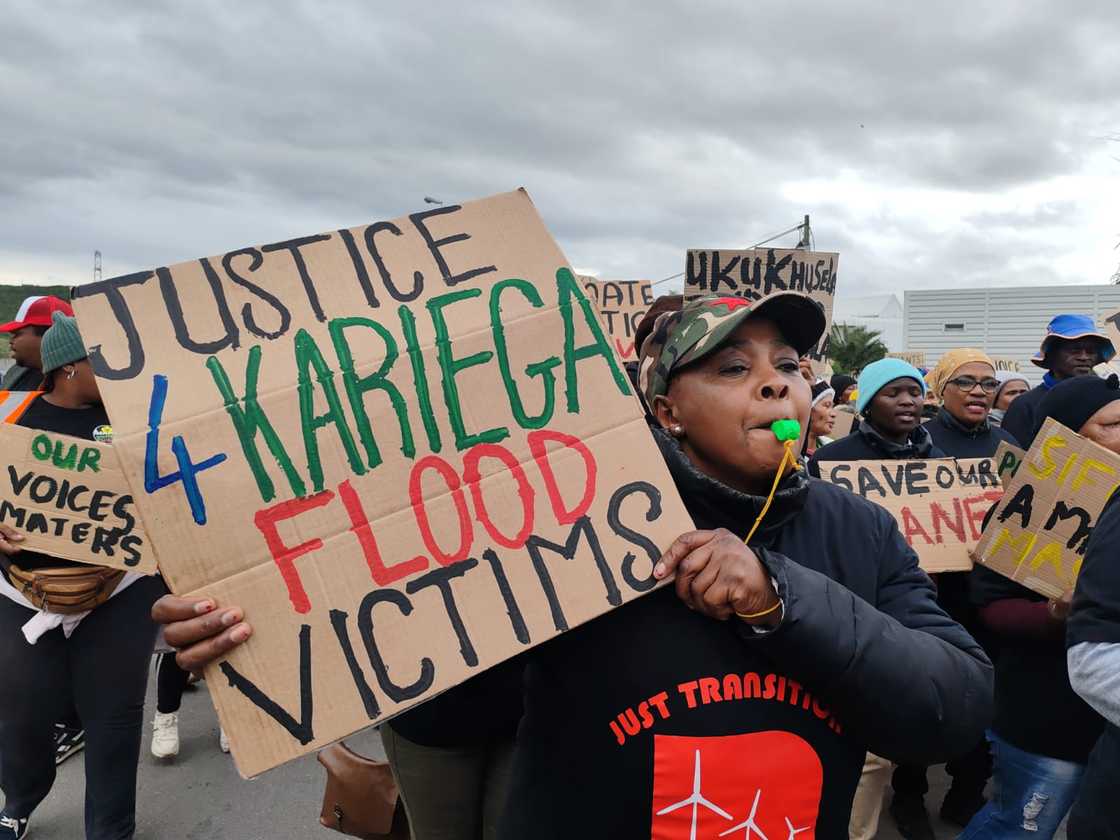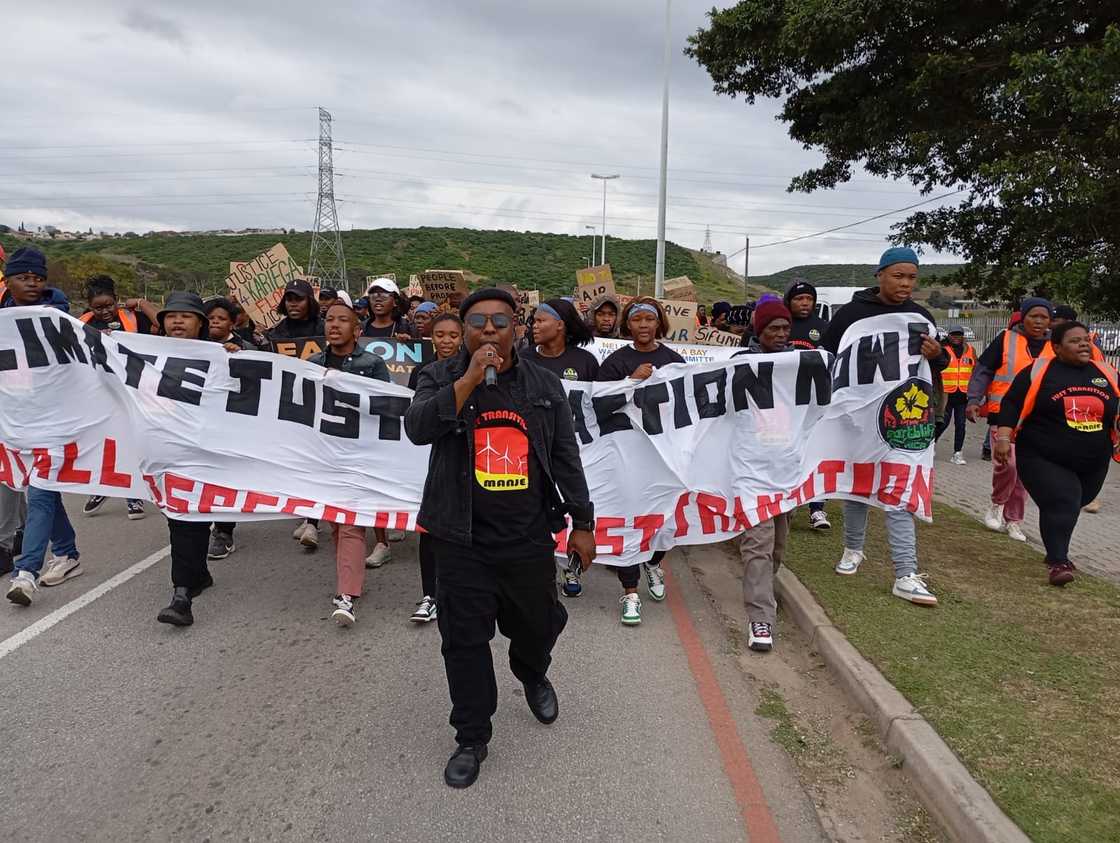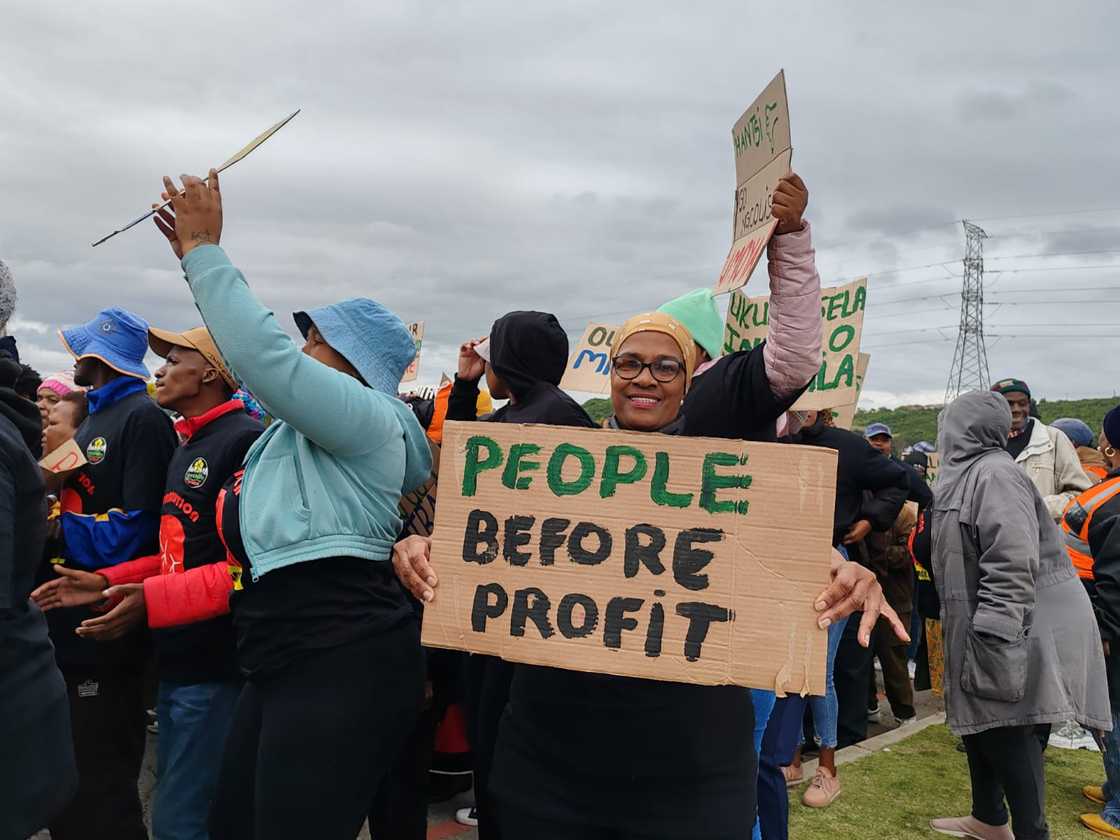"Enough is enough": 200 Uitenhage Residents Demand Government Response to Flood Crisis and Pollution
- On Friday, 27 September, over 200 community members from various organisations in Uitenhage/Kariega, Jeffrey’s Bay, Humansdorp, and Gqeberha protested for the government to take action in the climate crisis
- The march highlighted the immense impacts of the recent floods and ongoing environmental pollution
- The strike was spearheaded by the Eastern Cape Combined Environmental Forum, with the support of Earthlife Africa Johannesburg

Source: UGC
Uitenhage/Kariega, Jeffrey’s Bay, Humansdorp, and Gqeberha residents have had enough of the crippling climate crisis plaguing these communities. Over 20 community organisations took to the streets to call for immediate action to escalate the crisis.
The recent floods and ongoing environmental pollution have had devastating impacts, which continue to cripple local communities, the organisers said in a statement sent to Briefly News.
Scores of people called for accountability and decisive action from government and industry. The event organisers stressed that it's not only about the recent floods, but about the future. The organisers called on government to take action before it's too late.

Read also
471 Suspended government workers receive salaries, Defence Force employee on payroll for 5 years
Recent floods have devastated infrastructure in the area and left communities without basic services, clean water or safe roads. Residents are calling for a harmonised, potent response to natural disasters.
PAY ATTENTION: Briefly News is now on YouTube! Check out our interviews on Briefly TV Life now!

Source: UGC
Local activist Xolelwa Magalakanqa from #FriendlyEnvironment in kwaNobuhle Ward 46, said they marched to remind local government officials of the promises they broke.
Magalakanqa said kwaNobuhle hasn't had water for months, adding that the roads are dangerous to travel on and that pollution is "making everything worse." The activist also highlighted that companies illegal dump waste near residential areas.
"Enough is enough! Municipalities must act now.”
The protest also highlighted the need for stricter environmental regulations' enforcement.
Melikhaya Blani, chairperson of Hlumani Nande Environmental Ambassadors, emphasised the need for accountability:
“We’ve joined this march to stand with Uitenhage, which has suffered firsthand from climate change disasters. It’s time authorities enforce the environmental bylaws that already exist.”
Government must be proactive with disaster management and climate resilience
The communities want local and national governments to improve communication, provide better education, and promote greater inclusion in disaster planning efforts.

Source: UGC
Thandokazi Hewu from the Zwide-based Lean On Me organisation stressed the need for improved disaster response and education, stating that climate change directly affects quality of life.
Hewu wants the government to involve communities in disaster planning, adding that the community should be part of the solution.
"These floods have completely disrupted our lives, and we need answers on service delivery and recovery efforts.”
Earthlife Africa Johannesburg's Thabo Sibeko expressed their support for the march:
“We are here to support the ECCEF and their partners in amplifying these urgent climate issues. The recent floods are just one example of how hard climate change is hitting our communities."
Sibeko pointed out that kwaNobuhle residents have been suffering from severe air pollution that not only affects their health, but also contributes to global warming, which increases more climate disasters in future.
Climate change caused 26 extra days of extreme heat in last year
In an earlier report, Briefly News published that the world experienced an average of 26 more days of extreme heat over the last 12 months (12 months to May 15, 2024).
A report suggested that would probably not have occurred without climate change
PAY ATTENTION: Follow Briefly News on Twitter and never miss the hottest topics! Find us at @brieflyza!
Source: Briefly News



